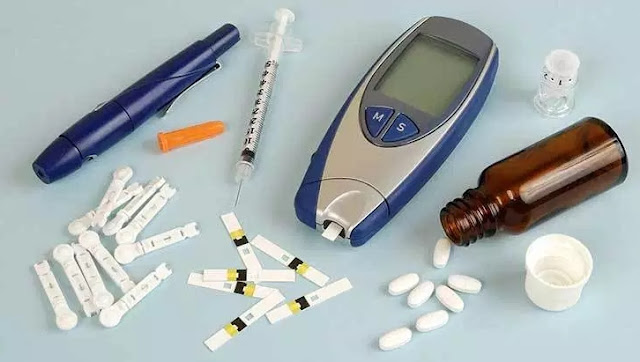Travel arrangements for diabetics
The full-fledged summer vacation season is just around the corner. According to the Korea Tourism Organization, about 2.76 million people left the country between July and August last year, with many leaving for summer vacation overseas. However, if you don't usually have diabetes, you need to make more thorough health care plans when you travel abroad.
If you suffer from diabetes, you should manage your blood sugar several times a day, and if your blood sugar level is irregular, you may suddenly fall into a coma. However, it may not be easy to control blood sugar because the environment and food are different during overseas trips, and if you have to get insulin shots, you may lose the medicine or lose the medicine due to poor medication management.
In addition, it is important to thoroughly prepare for travel and thoroughly understand safety rules at travel sites because it is difficult to get help from people or medical staff in case of emergencies such as diabetes coma or hypoglycemia.
Professor Choi Soo-bong of the diabetes center at Konkuk University Hospital said, "We often see cases where diabetes prevents us from traveling abroad because of diabetes, but if blood sugar management is stable and we keep our travel precautions well, we can enjoy a safe trip sufficiently. However, we recommend that we inform our companion or guide of our condition so that we can get help in emergencies and avoid complications such as diabetes."
Make sure you have plenty of medicine before you start.
▶Preparing for emergencies: If your blood sugar level is stable for the past month or two, you should confirm your trip. When the date is fixed, the preparation should be carefully prepared, but it is better to take a identification tag and a diabetic's notebook that can be found to be a case of low blood sugar. Also, it is recommended to bring comfortable shoes that are well ventilated and sweaty to prevent diabetic foot disease, which is called "sugar feet."
▶If you are taking oral or insulin medication, you should take the medicine with you more than the travel. The insulin injection should not be missed for a day, so it should be distributed and packed in preparation for loss. If you lose it in the country, you may need an English-language medical certificate or a prescription, so it is recommended that you receive it from the medical staff in charge of it in advance. It will also take emergency medicine such as ointment for wounds, fever and motion sickness pills.
▶Note on airplanes: When you hang up your ticket, you should book a diabetic in-flight meal in advance. A blood glucose meter or insulin must be carried on board because it is affected by atmospheric pressure and temperature. If extra insulin is put in the baggage compartment at low temperature, it can cause the insulin to freeze and become less effective. Also, it is recommended that you board the plane and inform the flight attendant that you have diabetes and know the time of the in-flight meal in advance.
You have to drink water often on vacation.
On vacation days, it can be difficult to control blood sugar because exercise and the type of food you eat are different. Therefore, it is recommended that you check your blood sugar level more often than usual with your blood glucose meter instead of over-scheduling your trip so that it does not differ much from your usual exercise. Also, drink water often to prevent blood sugar from rising due to lack of body fluids.
Also, what should be most careful about overseas is the prevention of diuretic footages. On the beach, it is recommended to avoid walking barefoot or outdoor water play, as it may hurt your feet on sharp pieces such as shells or stones, and protect your skin with clothes to avoid sunburn. After the outdoor activities, make sure that the feet are not blistered or damaged and wash them frequently with mild soap and lukewarm water.
If you're getting an insulin injection, you should also pay attention to storing it. Insulin is usually stored in a cool place, but if you visit a hot and humid country, it is safe to keep it in a refrigerator. If getting an insulin injection every time is cumbersome and the eyes around you are uncomfortable, use an insulin pump. The insulin pump can be more convenient during long-term trips as it can be replaced with needles inserted into the abdomen and supplemented with insulin every three to four days.





0 개의 댓글:
댓글 쓰기